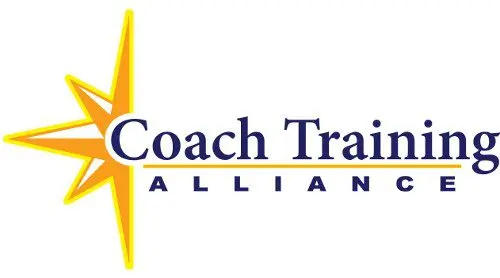An expert and an amateur are each states of mind. “The expert” is an ideal, a contrast to “the amateur”. Evolution from amateur to expert is a significant, life-changing passage when it occurs. The following distinctions can apply to that process of transformation.
“When ya get to the end zone, act like ya been there before.“
Coach Bum Phillips to rookie running back Earl Campbell
Experts seek practice and goals that exceed current levels of performance. Amateurs seek to sustain a comfort level without challenging it.
Experts continue concentrated, deliberate practice on focused areas to develop with informed feedback. Amateurs get to a level of good enough, and stay there.
Experts understand that there is no predetermined limit of ability. Amateurs believe there is a fixed reserve of potential.
The expert works from love, passion, and dedication; failure is information to guide proceeding. The amateur may be sidetracked by setback; failure is validation not to proceed.
The expert loves and pursues the game, whatever the game is, with total dedication and passion. The amateur pursues it as a sideline, part-time, like a weekend warrior.
The expert keeps going, no matter what. The amateur is dissuaded by setback and adversity.
The expert does what is important first. Amateurs do what is urgent first. Sometimes a football team can do more in the final two minutes of a half than in the previous 28, with imminent clock and finite time remaining can focus energy, attention, and concentration. The expert operates for the entire game in this zone. The amateur waits for the two-minute warning.
An expert takes an initial step or performance cue to move toward the goal each practice, each day. An amateur practices or performs when motivated.
The expert is on a mission, knows that fear can never be overcome, and recognizes that the best indication of what’s next may be what also generates most fear. The expert knows that once action has begun, fear will recede, like your lap when you get up to walk. The amateur must first overcome the fear, believing that comfortable is a prerequisite to begin.
The expert knows that “fairness” is a childhood wish; that in adulthood there is not even an ultimate arbiter of fair. There is always adversity, unlevel fields, bad hops, rotten calls, injustice, unfairness. The amateur seeks fairness, and is set back at what does not seem fair.
The expert does whatever it takes, even for what never could have been imagined. The amateur needs predictability, consistency, assuredness of results.
The expert respects the craft but is not superior to it, recognizing the contribution of those who have gone before. The amateur believes in inherent luck, intelligence, and waits for inspiration to come.
The expert dedicates to mastery. The amateur dedicates to proving himself or herself, needing to consistently demonstrate superiority and competence.
The expert does not take things or people personally, recognizes that others always make self statements, and does not succumb to criticism, envy, or idealization of others. The amateur is subject to the perception of others, to rejection, and reads the responses of others as if looking into an accurate mirror of a valid reflection.
The expert self-regulates and self-validates, takes in new information but does not let it determine meaning. The amateur becomes an extension of the interest, desire, and needs of others, is vulnerably reliant on the perception and feedback of others.
The expert has an internal point of reference, and is proactive. The amateur has an external point of reference, and is reactive.
The expert seeks the mastery of art as work, deliberate practice as lifestyle, success as creation. The amateur believes that art is inspiration, talent is innate, and seeks the lucky break.
The expert believes that the architect of magic is informed persistence and dedicated resilience. The amateur believes that magic is magic.
The expert shows up every day, no matter what, and is committed for the long haul. The expert understands delayed gratification, is the ant, not the grasshopper; the tortoise, not the hare. The amateur shows up as long as something else doesn’t get in the way. The amateur looks for shortcuts, quick results, and immediate gratification.
Experts know they can do best that which they do uniquely well. Amateurs try to do many things, to be everything to many people.
The expert always treats practice like a game. The amateur saves the best for an actual game.
The expert knows that the self and every storyline in life are created moment by moment; that the ultimate abandonment is of one’s self. The amateur believes that much is predetermined, some fate, some circumstance, some luck; that consistent attention must be given to be appreciated and accepted by others.
The expert believes that we write, live, and create in order to know. The amateur believes that we must know in order to write, live, and create.
Experts add value to their art, science, expert body of knowledge, and to others. Amateurs add value to themselves.
The expert believes that certainty develops with proceeding and mastery. The amateur must have certainty in order to proceed.
The expert has a plan and sticks to it no matter what. The amateur responds to the prevailing mood, mindset, or urgency rather than purpose.
The expert, even at times a warrior, believes in humility and modesty. The amateur believes in never showing vulnerability, doubt, or uncertainty.
The expert punches through the bag, runs through the finish line. The amateur hits the front of the bag, and relaxes at the finish line.
The expert knows that courage is to proceed despite fear. The amateur believes that courage is the absence of fear.
The expert sticks to the plan. The amateur let life get in the way.
The expert determines what is important and work toward a purpose. The amateur reacts to the urgencies of life.
The expert pursues the plan and purpose no matter how they feel. The amateur acts when in the right mood or feeling.
The expert consistently pursues success despite a routine practice, including boredom. The amateur pursues success when motivated or inspired.
———————————————————-
About the Author- David Krueger, M.D. is an Executive Mentor Coach, and CEO of MentorPath, an executive coaching, publishing, and wellness firm. His approach integrates the insights of psychology, neuroscience, and professional coaching to help professionals and executives write the next chapter of their business stories. The material in this blog are Excerpted from STRESS MASTERY AND PEAK PERFORMANCE: The Neuroscience of Optimum Performance Under Pressure www.HardWorkMiracle.com


